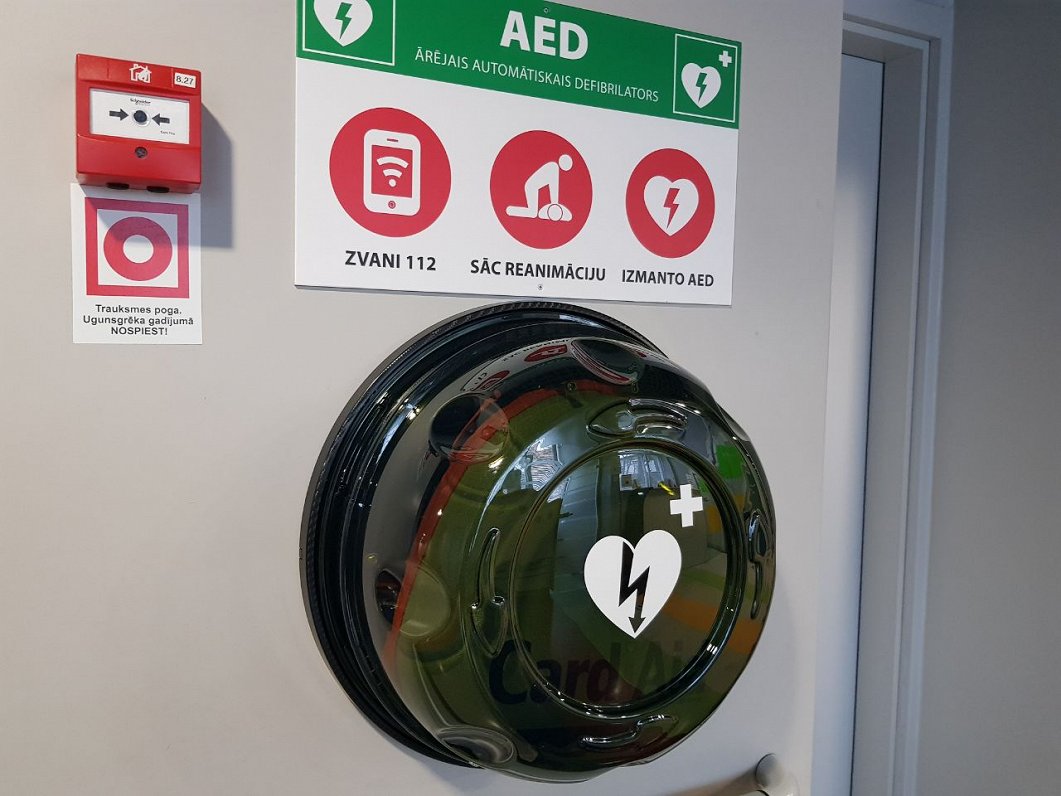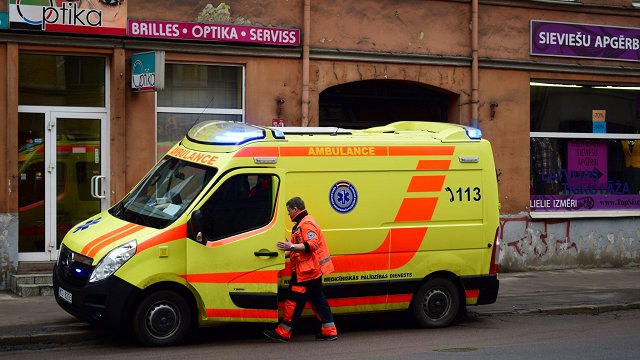In many countries this equipment is available on nearly every street. In Latvia, they are only found in companies or institutions that have purchased defibrillators on their own initiative. Examples of places that do provide defibrillators are the Rīga International Airport, IKEA, Decathlon stores, and the Rimi store network.
There is no data on how often they have been used or how many people have been rescued in this way, since until now their implementation has been voluntary, and multinational companies are often involved in a common strategy and internal culture.
But the Emergency Medical Service (NPSD) is known to carry out revival efforts in public places on average 1,300 times a year. NMPD calls are also listed where the emergency team failed to take resuscitation measures and has determined the death of a person, but it is likely that if bystanders in a public place had provided assistance, the patient might have been taken to a medical facility and survived. There were 922 such cases in 2020, 1,094 in 2021, and 1,045 last year.
In the event of cardiac arrest, if you don't immediately provide help and just wait for an ambulance to arrive, a person's chances of surviving are 10%. If help is given, the odds double.
How the defibrillator works, explains Ainārs Rudzītis, a cardiologist at Pauls Stradins Clinical University Hospital:
"When there is clinical death with ventricular fibrillation, a chaotic spread of electrical waves occurs in the heart, but there is no effective mechanical muscle contraction. There's a kind of shaking, flashing [..]. With the discharge [of a defibrillator], we pause it for a moment, there's no electrical activity at that point, and then the first to start waking up is a sinus knot, and it starts at a normal rhythm. Pulse spreads normally further down the heart muscle and provides contractions."
The cardiologist stresses that if semi-automatic or automatic defibrillators available in public places are used and the instructions are followed, this is safe and does not endanger the victim or the giver. The apparatus tells you what to do, you don't have to count the pulse yourself, or make a decision about an electric shock - it happens automatically.
People will become accustomed to seeing defibrillators like they are accustomed to fire extinguishers, but it is even more important to be accustomed to the idea that they should be used, said Rudzītis/
Defibrillators will be mandatory in public places from early next year, as provided for in amendments to the Medical Treatment Law.
“In places where there are many people circulating, where there are different sporting events, or for example Song Festival, or in shopping centers, airports - where there are a lot of people moving and there could be a need for these external defibrillators,” said Sanita Janka, director of the Ministry of Health (VM) Health care department.
Information on the positioning of defibrillators would also be at the disposal of the NMPD.
Without objecting to the idea as a whole, the Latvian Chamber of Commerce and Industry (LTRK) has given a critical assessment of the draft government regulations regarding the location of defibrillators.
"This device may be necessary to save a life – the purpose of this is, of course, very supportable. At the same time, to put the devices on each corner and not ensure that they are able to be used, let's say, simply because of enforcement of the rules, to position them more than they are needed – this is hardly useful from both the financial and management point of view," LTRK spokesperson Jānis Lielpēteris said.
The annotation of the draft regulation indicates that it has no impact on the state or local government budget, however, defibrillators may also have to be purchased by large cultural or, for example, social care institutions under the control of the state or local governments.




























